What to do with 50k? Will it be enough to fund your start-up business or invest in stocks? Will you finally purchase that luxury bag you’ve been eyeing for a while now? Buy that round-trip ticket to explore another side of the world? Or deposit a substantial part of your money to a high-yield savings account?
Suppose you won the lottery, accumulated extra savings of 50k, or a wealthy relative gift this amount to you. Now you’re dumbfounded as to what else you can do with your additional money. Besides, it’s already good enough money!
Would you let it sit in the bank and gather dust of little interest for the upcoming years? Or would you take a chance to grow it and make another 50k, then another 50k, and another 50k?
How’s that sound? Today, let’s talk about how to maximize your 50k and not just double or triple it but also do something meaningful with your hard-earned money.
So, without further ado, let’s get started!
What To Do With 50K? 5 Smart Things You Can Do To Make The Most Out Of Your Hard-Earned Money

First of all, if you’ve made it to 50k in your savings, CONGRATULATIONS! You’ve made it this far! This proves that you can make money up to this amount and who knows, you can make more than that!
Besides, know that no matter how, where, and why you have 50k sitting in your lap right now, you deserve it. Well, hopefully, it all came from legitimate ways, but nonetheless, having $50k is an achievement already worthy of being counted in your financial goals.
It’s not easy to accumulate such amount that high, and no wonder you’re here looking for ways to make the most out of it.
Well, unless you already have specific things you will do with your $50k, below are some of the things you can do with it.
1. Get out of debt.
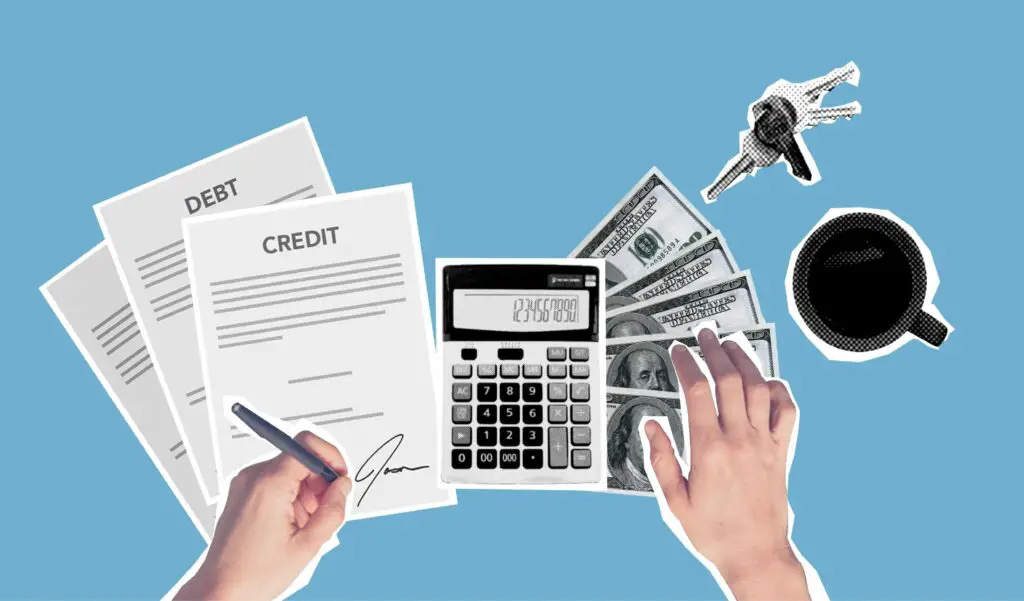
What to do with 50k? Well, if you have debts piling up, now is the perfect time to crush it.
It may seem like a little bit “off” prioritizing debt, by all means. However, most financial advisors will advise you to do the same.
Before you can go out there and increase your money, you must take some time to settle the unclosed books of your accounts first. Not only it affects your credit score and improves your relationship with your creditor, but there’s a liberating feeling when you can finally sigh so deep with ease and calm.
Once you’ve paid off all your debts, try to avoid it at all costs and get the hell way out of it fast. Don’t let yourself be trapped in the loophole and fall into the dangerous world of debt once more.
Get out of debt with your $50k and move on with your life.
2. Build and boost your emergency fund.

After you’ve paid your bad debts, or even if you have none, the next best thing you can do with your 50k is to build and boost your emergency fund.
The basic rule of thumb is to allocate at least three to six months of your monthly living expenses. So that, when you have to go to the dentist, fix a leaky faucet in the house, or sudden job loss due to economic recession, you have a safety net or a fallback plan.
After that, continue to build it up and boost your emergency fund. You can still add $500 or $1,000 depending on your comfort saving level. After all, we never know when life will go crazy and how much it will affect your financial life.
Remember, an emergency fund is not for casual expenses. You must strictly use it for EMERGENCIES ONLY and not for entertainment, car purchase, or buying a new house.
Building your emergency fund means you don’t have to go into debt to take care of emergencies.
Therefore, better to be prepared for life’s exciting surprises.
3. Invest.

You probably head about it, right? Investing is one of the ways wealthy people stay the same and live their life stress-free.
If you want to make the most out of your 50k, you got to be familiar with the verb “invest.”
Investing means spending money on a venture with the expectation of a profit. It’s like planting a tree and then nurturing it, watering it every day, giving it enough sunlight, and then waiting for it to bear sweet fruit.
On the other hand, investing can also look like planting the seed right now but letting the farmer or agricultural expert do the labor for you.
Through investing, you give your money the ability to grow and multiply and make more money for you through its alliance with time.
Keep in mind that investing is not a get-rich-quick scheme; investing takes time, and if you don’t have the patience to make your money work for you, don’t bother investing. Go trading instead.
Investing is more on letting your money do its work, while trading is more on speculating current market flows.
Related reads: How to Start Investing Your Money Like a Pro – The beginner’s guide
Questions to ask yourself before investing
Now, don’t let anybody fool you: investing is ridiculously easy… if you want it to be. However, investing is not complicated, nor can it drain the blood out of you.
Especially today, with technological advancement, investing has never been easier. Thanks to various easy access and resources that you can use to get started in investing. Plus, you don’t need a huge amount to start investing; you can start investing even with little money.
Just like personal finance, it should be personal. Sure, it doesn’t hurt to follow acclaimed financial gurus advice out there, but you have to make investing personal. Before you decide to become an investor, ask yourself:
- What are my financial goals? (short-term and long-term wise)
- How comfortable am I with the risks associated with every investing opportunity?
- What type of investor will I be?
To give you an idea, here are the three approaches to investing.
1. DIY Investing – Do-it-yourself approach means to say you must find the right partner brokerage for you, choose which assets to invest in, do your research, and monitor your investments closely by yourself.
2. Robo-advisors– Now, if you’re a busy professional and don’t want the hassle of doing all the nitty-gritty part of investing, there’s a robo app for you that will do all the investing hard-work. These robo-advisors such as M1 Finance and Robinhood will manage your investment portfolio for you and automatically re-balance accordingly.
It’s not totally working without human supervision. Of course, only a little. That is why it’s called a set-it-and-forget-it approach.
3. A combination of both– Lastly, you can combine DIY investment approach + passive investing through robo apps through hybrid investing. This means that you maintain both investment approaches, one with yourself and one with the help of a financial advisor.
Whatever your choice is when it comes to any investing approach, always remember to:
- Identify your investment objectives,
- Build your financial portfolio in order,
- Determine your appetite for risk,
- Diversify your assets and spread the risk,
- Have a long-term mindset
- And make a regular investment program (look for a reliable and trusted fund manager, good brokerage company, and dedicated financial adviser.)
Where to invest?
Now, what to do with 50k? Here are the following asset mix you can put your 50k partly or all in.
1. Retirement Accounts
When we say retirement accounts, these are your 401(k), 403(b), Traditional, and ROTH IRA accounts.
If you’re a regular employee, do yourself a favor today and max out your contribution to your 401(k) – employer-sponsored retirement account. Your employer is probably matching the amount contributed to your 401(k), and you should try to add up more money to this account.
For freelancers or anyone looking for more flexible retirement options – Traditional or ROTH IRA works best (depending on current life situation + tax advantage timing.) While for those public teachers, school administrators, or anyone working at specific tax-exempt or not-for-profit organizations, save money to your 403(b) accounts today.
After all, who doesn’t want to FIRE? (Financially Independent and Retire Early?) It’s now time to make your dream of retiring at the coast sippin’ that mojito come to life.
| 401(k), 403(b) | Traditional IRA | ROTH IRA |
| Employer-sponsored | Upfront Tax Break | Tax Break after withdrawal |
| Tax-deductable | Early withdrawal penalty before age 59 1/2 | Contributions can be taken out anytime without penalty |
| Early withdrawal penalty before age 59 1/2 | Contribution limit of $6,000/yr | A contribution limit of $6,000/yr |
| Contribution limit of $19,500/yr | Can open accounts a single filer if modified adjusted income < $125,000 |
2. 529 College Plan
If you’re a parent, investing that $50k to your child’s education this early might be one of the best things to do.
Educational investment accounts allow a fund to be used to pay for educational expenses. They’re offered by states and educational institutions, and there are no taxes on investment gains.
Take note also that there is no contribution limit but over $15,000 requires a gift tax return filing. Plus, you can withdraw anytime without incurring penalty charges as long as it is used for educational expenses.
3. Health Savings Account
Also known as HSAs, it is used to cover any health expenses. Think of it as an emergency fund just for health expenses, and it can grow over time.
Therefore, if you are health-conscious and prioritizes well-being, investing in a health savings account makes sense.
It’s worth mentioning that contributions in HSAs are tax-deductible and are limited to $3,550 per individual and $7,100 per family.
Moreover, withdrawals are tax-free, and you can rollover the money in an HSA to the next year if you don’t use it. Once the funds in an HSA reach a certain balance, the funds can be invested.
4. Stocks and Bonds
A classic asset investment, stocks– is buying and selling ownership in a company, e.g., Apple, Amazon, Google. On the other hand, bonds– are lending money to a company or country, such as Treasury bills.
In buying and selling individual stocks, your gain or loss is determined by that company’s performance and its stock. If the company you invested in performs well, you will gain a handsome profit of capital gains through price appreciation and stock dividends.
However, if the company experienced financial difficulties, your stock value could decline in value.
Many people are hesitant to enter the stock market due to its volatility and high risks. Still, you can invest in individual stocks or even buy a fractional share through robo-investing platforms. Take it from a guy who’s singing in his ukelele and is now one of the world’s wealthiest people.
Be fearful when others are greedy, be greedy when others are fearful.
Warren Buffet
For bonds, (debt instruments), there are treasury securities, corporate bonds, and municipal bonds, among the few. How does it work?
Basically, the investor will provide a loan to a borrower, and then they must pay back the face value of the loan on a specific date, plus the interest payments once it mature. Government and corporations issue bonds to raise additional funds for their projects or community enhancement program.
Treasury bond is considered a risk-free asset since it is backed by the U.S. Treasury.
5. Mutual Funds and ETFs (Exchange-Traded Funds)
Mutual Funds are a basket of investment or a pool fund. It may consist of stocks or bonds or both. For 401(k) plans, mutual funds are usually the best choice.
One advantage of investing in a mutual fund is that it is run by a professional fund manager who will help you manage your portfolio. Since every asset has a risk, a mutual fund also allows you to have a risk management strategy or diversification.
In the case of ETFs or exchange-traded funds, it resembles the mutual funds except that it is mostly passively managed. They also traded like stocks, compared to mutual funds which can only be purchased at the end of each trading day based on a calculated price.
Whether you want more flexibility or a customized approach to investing, don’t forget to have a business owner mindset which means investing base on value. Do your research to determine the best asset for your portfolio and develop good risk management.
| Mutual Funds | ETFs (Exchange-Traded Fund) |
| Bought and sold once per day | Actively traded throughout the day, like stocks |
| Have higher tax implications | Often have lower expense ratios |
| Actively managed | Passively managed |
| Priced only once per day after market close based on NAV (Net Asset Value) | The price may fluctuate throughout the day |
6. VUL (Variable Universal Life)
Also called Unit Value Investments, or Variable Unit-Linked, if you want your investment to get bundled with a life insurance policy, VUL is the right plan for you.
The analogy here is like choosing a frappe with whip cream versus plain milk tea with black pearl.
In a way, you benefit from your money’s growth while being kept safe and protected by the insurance policy covered.
Although there has been a massive debate whether you should take a VUL or not, it all depends on your financial goals. Ultimately, VUL is insurance that protects your life but it makes the most out of it through the gains you accumulate from investing a part of it.
7. Cryptocurrency
Y’all familiar with the rise of cryptocurrency, specifically Bitcoin. A bitcoin is digital money that you can exchange for goods and services.
Today, Bitcoin has been going up and down with majority claims of gaining “x” amount and will make them super-rich.
However, investing in cryptocurrency brings both pretty and ugly parts. As an investor, it’s your call to know what you’re dealing with and make an informed decision through educating yourself.
Our advice, don’t go straight ahead; test the water first. Cryptocurrency is just one way to park your money.
Read more:
8. Real Estate
One good answer to your question what to do with 50k? Well, invest in real estate! Although it may not be enough to purchase a property outright, you can use it as a part of your down payment.
Indeed, investing in real estate is also one way to build wealth. Owning a property can leave a legacy to your next generation and more.
There are so many ways to invest in a property even with a little money. One is through REITs or Real Estate Investment Trust. A REIT is a company that owns and operates a set of properties that generate income. When we say income-generating properties, these are Offices, apartments, warehouses, utilities like toll roads, hospitals, and more.
Typically, anything that generates a recurring income is considered a REIT.
Besides that, another way on what to do with 50k is to invest through crowdfunding in real estate. It’s like crowdsourcing or an alternate financing option. Through real estate crowdfunding, small investors have been allowed to buy a property deal and act as a shareholder- passively.
However, despite the proven success of real estate investment, you must research the underlying property and choose the right crowdfunding platform.
Additionally, you can also gain from flipping a property. Basically, you buy a property at a low price, put some money into the renovation process to increase its value and then list it up for sale with a markup amount.
You must be careful in doing this strategy in real estate as timing is of utmost importance. You may not be able to sell the property as quickly, and this could mean that you just spent a ton of money renovating a property with little or no returns.
4. Start a business.

Wondering what to do with 50k? Start a business! I mean, of course, a legitimate one and not a monkey business!
If you’ve got that “entrepreneurial spirit’ within you, use it to provide better products and services to make the world even a little bit better.
Let’s say you have a creative and unique solution to help solve people’s problems (e.g., hair loss, productivity,) provide solutions, and make their lives better. Why not develop a profitable business model from it?
You may think, “But, it’s all been done before!” Yes, many people before you has done that business but not you. If you have a passion for doing your stuff, monetize your hobby and start a business out of it.
A business can not just help people’s life better, it can also provide them jobs to feed their families, and you can contribute to your community or the country’s economic well-being.
Besides, owning a business is the one thing that separates the rich from the average individual. You know, it’s all about how many companies you own can generate a stable income for you for the coming years.
Moreover, it’s easy to start a business even with little money. Talk about online business!
Therefore, that $50k might just be excellent capital for your start-up.
5. Give back and help out.

More importantly, giving back and helping out can be one of the most selfless and meaningful things you can do with your 50k money, If you feel generous, It doesn’t need to be the whole amount; you can give even a portion of it.
Nowadays, there are so many institutions accepting such charity and donations.
You can donate to an orphanage, an animal shelter, etc. Of course, do your research first and check if your chosen institution will really put your money into good hands.
Furthermore, if you support a cause or advocacy, you can reach out to your local community center that caters and helps the same values and principles you lived and donate your money.
At the end of the day, you will feel blessed to become a blessing to those in need.
Wrapping Up
Wherever you are in your life right now, having that 50k may be enough or more than enough to you, that’s why you sought ways to spend and use it in a most worthwhile experience.
Whether you want to use it for yourself or for others, the most important thing is you know how to keep it growing and spend it with a purpose.
Aside from the mentioned above, you can also use your 50k to live your dream travel. Go ahead and buy that ticket now, explore the world and experience a different culture.
You can also use it to invest in yourself. Go and pursue that master’s degree you’ve been aiming since the day you graduated. Learning shouldn’t stop the moment you step out of your university gates.
Learning should be forever; be a student for life!
Do yourself a favor today so that your future you will thank you for investing that 50k in the most significant way. For instance, think about your 401(k), it’s like getting free money from your employer, and it’s tax-deductible, so boost it now.
Above all, whatever your financial goals are, keep it personal. Follow your heart in decision-making; whatever you want to spend and use your 50k is, no one will stop and condemn you.
What we offer here at TheFinanceBoost are insightful guides to help you and give you better options. Remember, keep your personal finance life, personal as it is.
Not all financial advice or “noise” out there applies to you; follow your intuition.
Stop taking every piece of advice you see just because it sounds good. Not all financial advice you see or hear applies to you because everyone is at different stages in their journeys. And what used to you last year may not anymore.
Figure out where you are and go after what will help you get to where you want.
TheFinanceBoost
Investing is like an educated gamble. If you want a clear headstart to make your way through it, download our free PDF Guide as your Investing starter pack.
It has the bite-sized information you need to bootstrap your investing journey.
And for more actionable financial tips, stay tuned to or blog and read more of our free financial guidance.
What do you think of this post? Do you have anything in mind that you want to add to do with your 50k? Share your thoughts with us below! Let’s talk about what to do with your 50k.


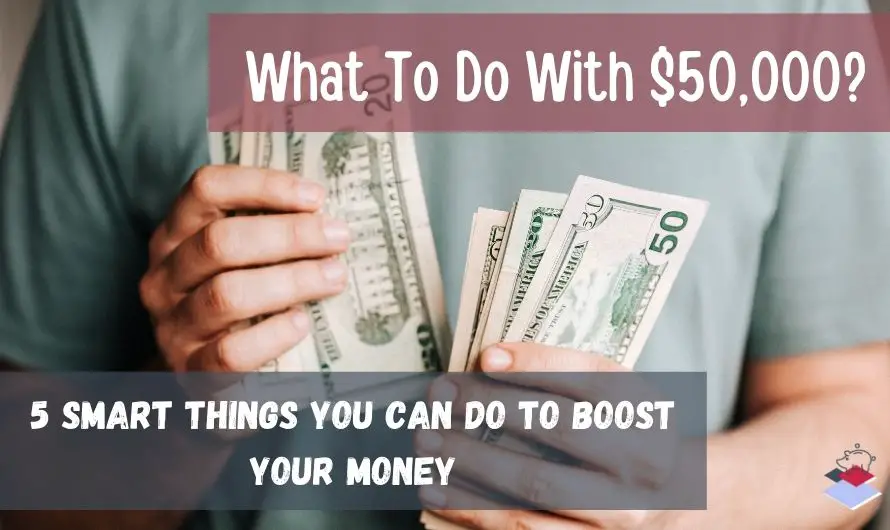
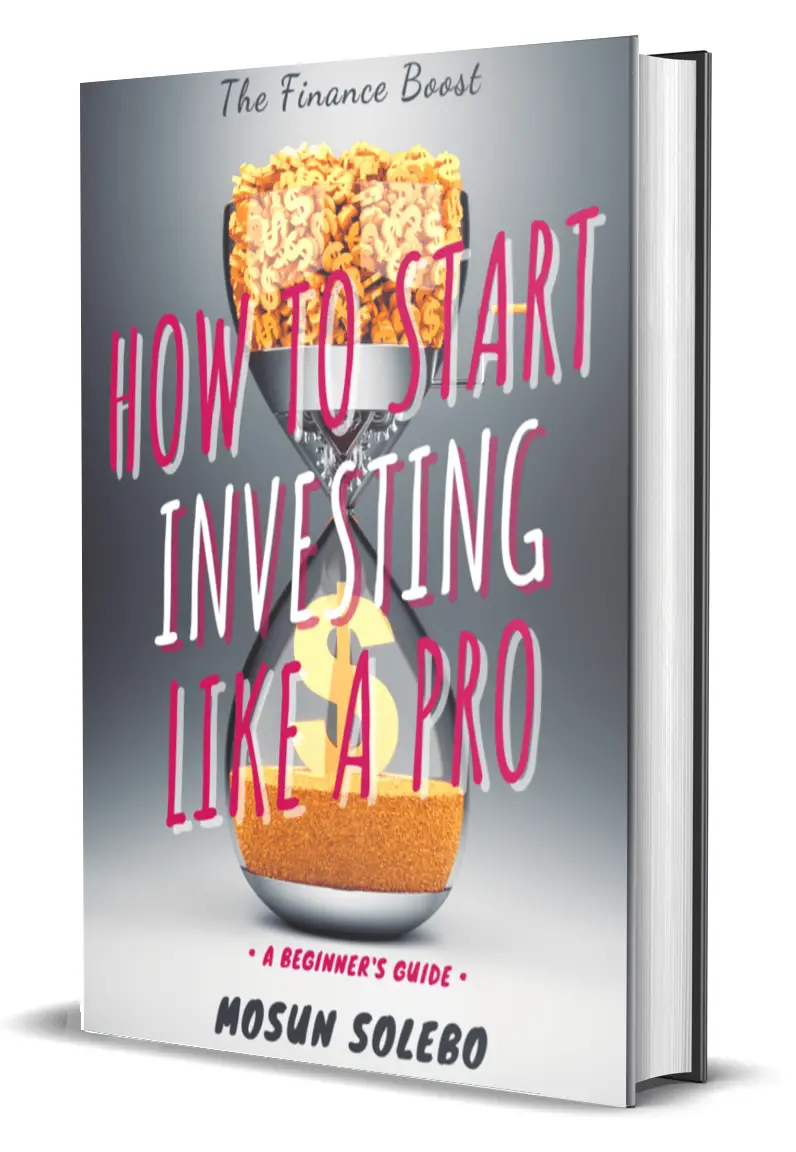
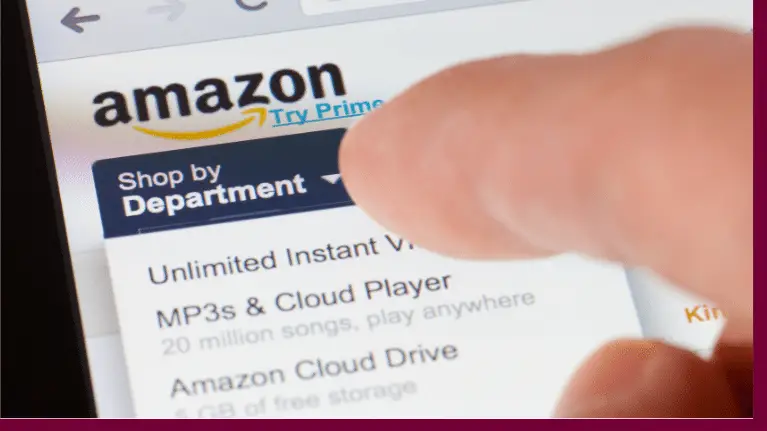


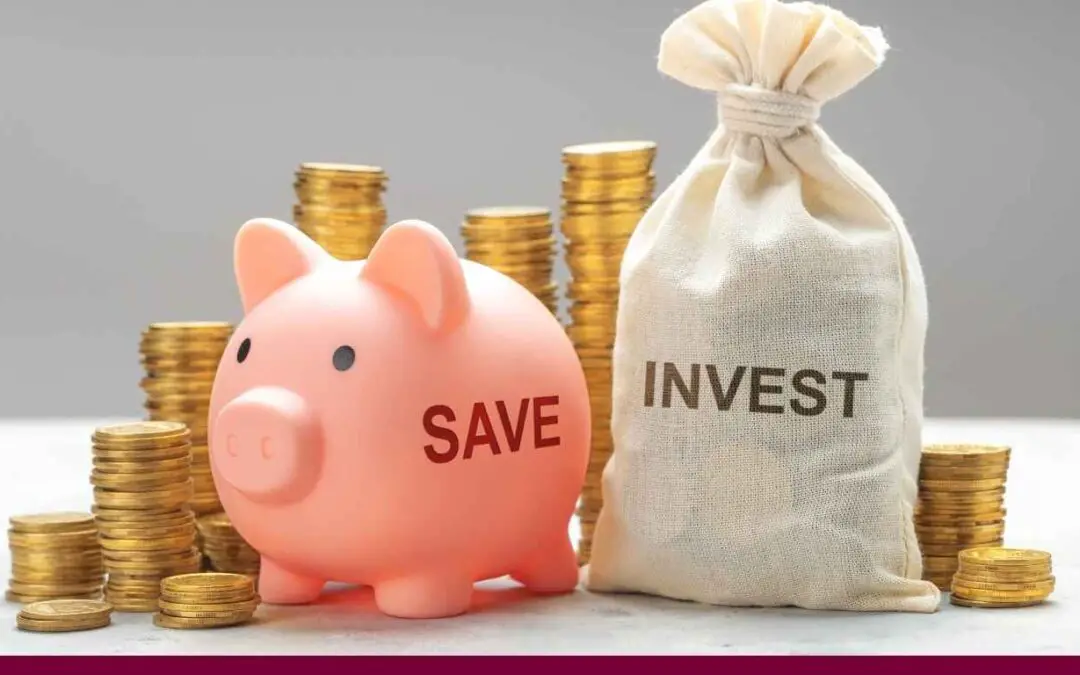


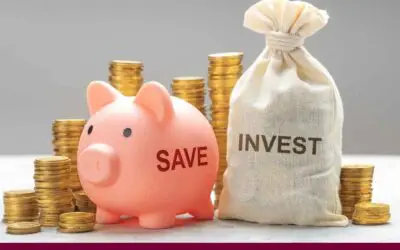

0 Comments